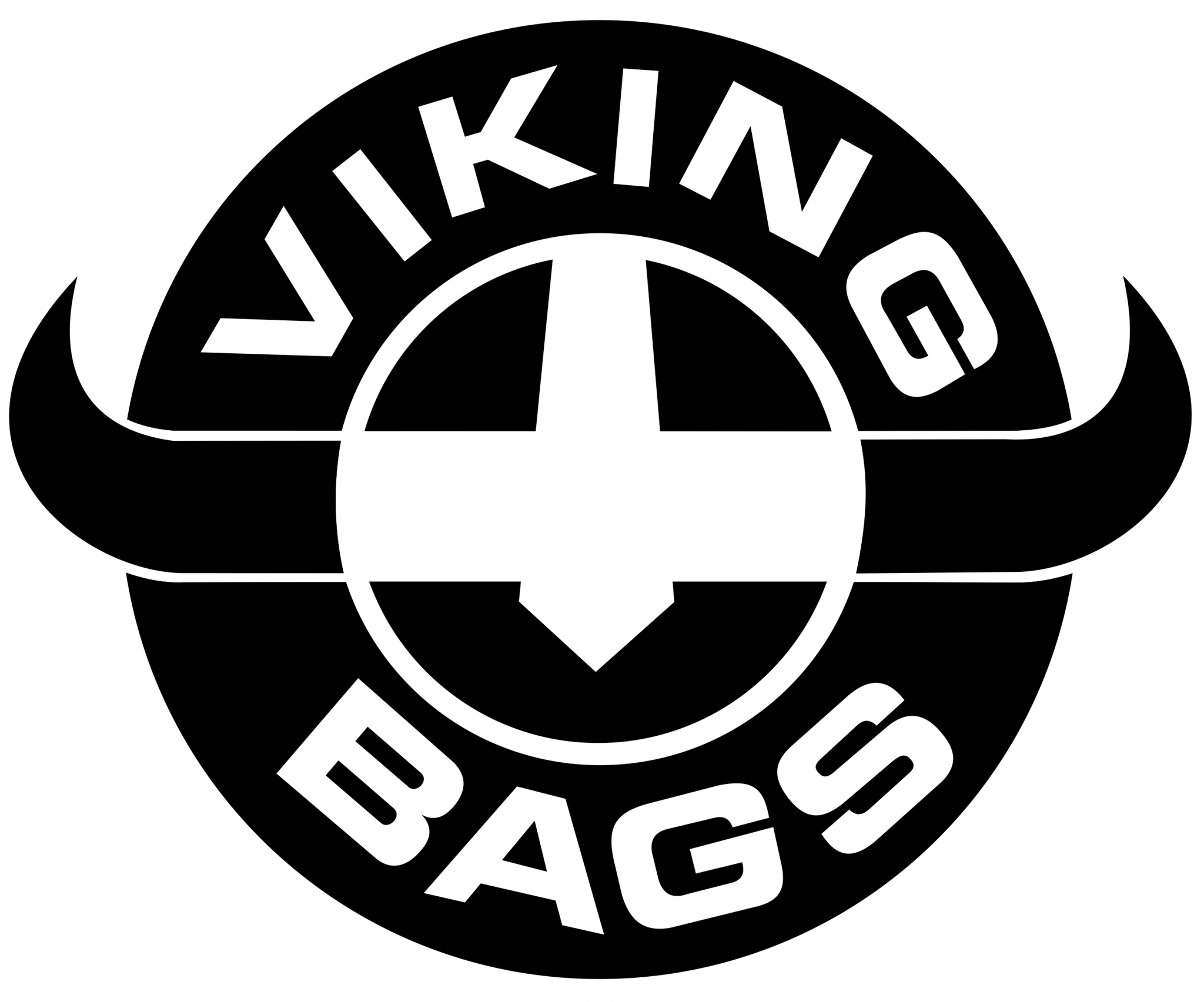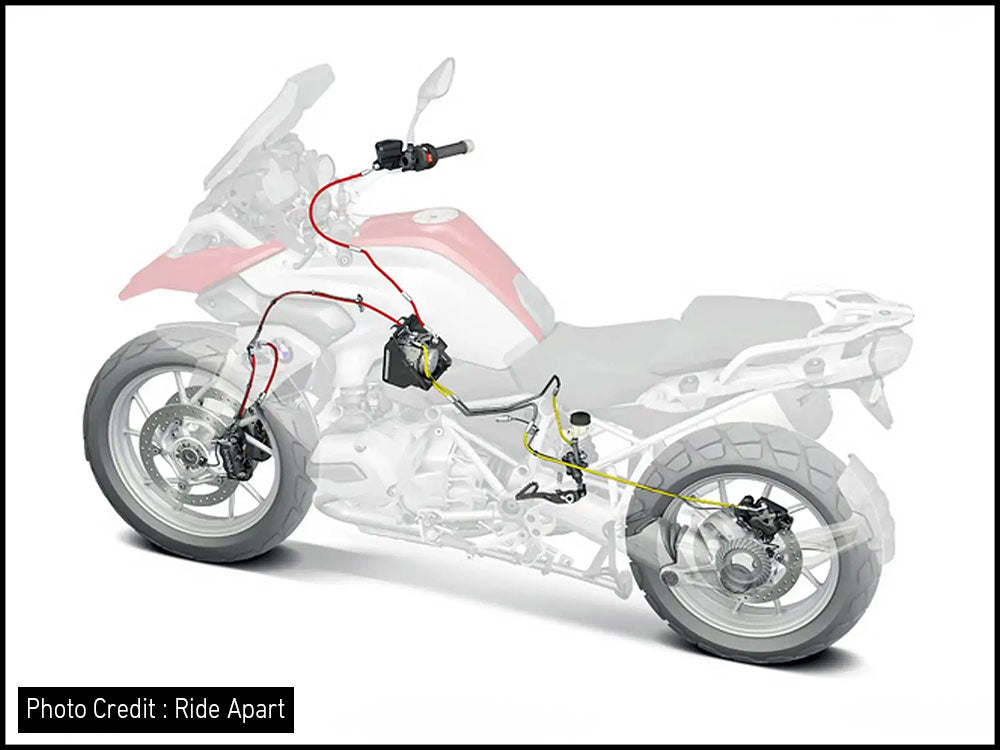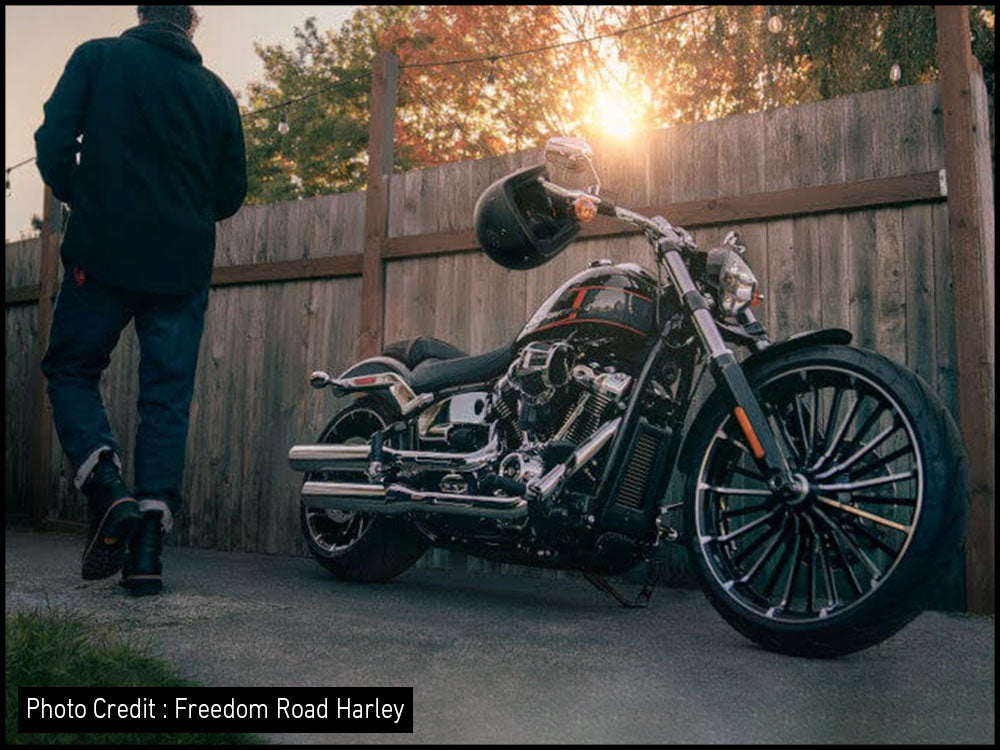Without the ABS, high-performance and top-speed vehicles would still be a dream. The more powerful a motorcycle or vehicle is, the more power it will require to stop. This is why brakes were also made more reliable and strong.
Initially, when motorcycles were introduced, brakes weren’t too powerful. The same braking technology that was used in bicycles was used in motorcycles as well. This is the reason why motorcycles built initially were highly unsafe.
As time progressed; motorcycles became more powerful and quicker; there was a need for a more reliable braking system. The time came when brakes on motorcycles became somehow reliable and strong.
However, the motorcycle dynamics are different from other vehicles. Motorcycles have two wheels, whereas a car has four. Braking hard on a motorcycle, particularly during emergency situations, is a nightmare for a rider compared to a car. A car has the tendency to control and stay stable. Meanwhile, motorcycles are more prone to skid, especially while braking.
Therefore, a more enhanced braking system was required to develop a better sense of security. ABS was designed for motorcycles to tackle all the braking issues. The ABS is a smart and intelligent braking system installed on motorcycles which helps them not to lose control. Continue reading this article to learn in detail about the pros and cons of ABS on motorcycles.
1. What is ABS?

1.1 What Does ABS Mean?
ABS is a short form of Anti-Lock Braking System (ABS). It is one of the most important safety features found in almost every vehicle nowadays. They are also an integral component installed in motorcycles. ABS improves the level of safety by enhancing a motorcycle’s stopping capability.
Before getting into details about how ABS works, we first need to know what wheel lockup is.
1.2 What is Wheel lockup?
A wheel lockup is a situation in which the wheels of a vehicle lock up when brakes are applied to stop it quickly. One may think that this is what brakes are supposed to do: to stop the wheels from moving. However, this can cause the motorbike to skid and continue moving uncontrollably in an unwanted direction, resulting in a motorcycle crash.
1.3 How Does ABS Work?
Some riders may find ABS as irritating. However, it is a lifesaver. What is the worst possible scenario that can arise if you are riding a motorcycle with an ABS? Imagine if you have to stop a motorcycle immediately while riding, and your bike doesn’t have the ABS. A situation called “Wheel lockup” can arise.
As mentioned above, a wheel lockup can be extremely dangerous for your safety. Therefore, ABS is introduced to tackle this. ABS prevents wheels from locking up. It allows your motorcycle not to lose control even during hard braking.
Apart from preventing locking up the wheels, ABS also maintains better traction between the road and the wheel for better control.
2. Pros of ABS on Motorcycles
2.1 Improved Braking Performance
ABS allows your motorcycle to stop sooner and more effectively. While hard braking, the wheels may lock, which is not suitable for control. However, when you use ABS, you are able to control your bike better. This means that you can stop within a shorter distance and avoid the occurrence of an accident.
2.2 ABS Helps with Steering
ABS also helps with steering. Steering becomes one of the major issues while braking. Without an ABS, you will not be able to steer the bike at all and will lose control while braking. However, with ABS, you can continue to steer the bike effectively to avoid a motorcycle collision.
2.3 Shorter Stopping Distance
A major advantage of ABS is that it makes it possible for you to bring your motorcycle to a stop at a shorter distance. When your wheels do not lock up, the gripping of the bike continues. You are able to stop faster. This is particularly useful in cases of emergency braking.
2.4 Improved Safety
ABS increases the safety of riding a motorcycle. ABS makes sure that your wheels do not lock up, and therefore, you will not skid off or crash during hard braking. This can help you avoid accidents and injuries.
2.5 Reduces Tire Wear
Your tires will last longer because your motorcycle’s wheels don’t lock up and skid. Skidding causes motorcycle tires to rub harshly against the road surface, resulting in early wear and tear. This is how ABS offers protection to your tires. You will have to spend less on the repair and replacement of tires.
2.6 Good for Wet Conditions
ABS is beneficial on wet roads where motorcycles are more likely to skid. Water can make the road slippery, and your wheels are likely to lock up. It is very common for motorcycles to skid in the rainy season, resulting in more road accidents. ABS has solved a much bigger issue and has helped make the roads safer.
2.7 Provides Better Control
When braking, the rider has better control and greater authority over the motorcycle with ABS. Steering is possible when you are stopping with the ABS. You can avoid any mishaps that may come in the way while braking hard. You can improve your riding safety with ABS.
2.8 Improves Confidence
Knowing that your bike is equipped with ABS makes a rider more confident. It will make you feel safer and more in charge, most importantly in challenging situations.
2.9 Reduced Rider Fatigue
ABS also helps reduce rider fatigue, especially in traffic congestion. By controlling brake pressure, the ABS can help avoid the discomfort of arm and hand.
2.10 Improved Vehicle Stability
ABS can also assist in increasing a motorcycle’s stability in situations where you are required to brake quickly and hard, eliminating cases of low-side motorcycle crashes.
2.11 Enhanced Rider Confidence in Rain or Snow
Apart from general riding confidence, ABS can very well enhance the rider’s confidence, particularly in difficult situations such as rain or snow.
3. Cons of ABS on Motorcycles
3.1 Added Complexity
ABS is a complex equipment that is comprised of many components. This means there are more things that can work against you or fail during the ride. ABS system is as important as the braking system of your bike. When something fails in the ABS, you may not be able to stop your bike at all.
3.2 Potential for False Positives
In some cases, ABS will believe that your wheels are going to lock up when they are not going to, and thus, it will interfere with your riding. This can make your bike unstable and respond weirdly when you brake. It may also take longer to come to a complete stop.
3.3 Added Cost
Generally, motorcycles with the ABS feature are more expensive than those without it. It is because the ABS is an extra component that is incorporated in a motorbike.
3.4 Added Weight
ABS systems add a little weight to motorcycles. This may impact how the bike responds, which can be noticeable when going at great speeds or when taking corners.
3.5 Not as Effective in Off-Roading
ABS is meant for normal roads. In conditions when the road is rough, for example, on dirt or gravel roads, the ABS will not work as expected. It can even make it difficult to control your motorcycle. This is the reason why most dirt bikes don’t have an ABS. Motorcycles that are capable of going both on- and off-road, like dual-sports or adventure bikes, feature a switchable ABS system.
3.6 Increased Risk of Sliding While Cornering
When you brake heavily while cornering, ABS makes your motorbike slide. This is because ABS works to prevent the wheel from locking even if it is unsafe to do so in turn.
3.7 Not Good for Poor Surfaces
ABS works best in good road conditions. It may need better road and weather conditions. For example, riding on snow or ice will make ABS less effective. However, one has to be very cautious when applying brakes in difficult circumstances.
3.8 Increased Maintenance
ABS systems are more delicate. You may have to go for a service more frequently to have your ABS system checked by a mechanic. This can cost you more, particularly if you hire the services of a professional mechanic.
3.9 Increased Repair Costs
The regular service is necessary, but the repairs of the ABS system and its components also need to be done when required. It can cost you a great deal compared to what a normal braking system would have.
3.10 Potential for Overconfidence
Riders may develop a tendency of over relying on the ABS, which may make them more reckless while riding.
4. Frequently Asked Questions (FAQs)
4.1 Is ABS Good or Bad for a Motorcycle?
The anti-lock brake system (ABS) is a safety feature that is available on most motorcycles. It is intended to minimize the chances of the wheels locking up when you apply brakes. This is important because if the wheels are locked, the motorcycle is likely to skid, which is not safe.
In normal braking without the ABS, the wheels may lock up, and you may find it difficult to control the bike. It prevents this by engaging and disengaging the ABS very fast to maintain the stability of the motorbike and stop it safely. This keeps the wheels rotating, and you get the feeling of handling the motorcycle much better. Therefore, ABS is an excellent addition to the motorcycle.
4.2 What is the Difference Between ABS and Cornering ABS?
ABS and Cornering ABS are two systems that help in braking but in different conditions.
Standard ABS lets you come to a standstill without skidding when you are riding straight. It is like having more assistance in controlling your bike, mainly when you apply emergency brakes.
Meanwhile, cornering ABS is a relatively recent innovation that does the same as the standard ABS and also operates when cornering. This means it can pull you to a stop safely, even if you are leaning into a corner.
4.3 Can You Disable ABS on a Motorcycle?
As ABS has become an integral safety feature in almost every motorcycle, you cannot deactivate the ABS system once it is enabled. It is a basic safety mechanism, and therefore, motorcycle manufacturers do not allow riders to disable or remove it. This is because ABS can be of great importance in avoiding the occurrence of accidents.
However, there are a few modern dual sports or adventure bikes that allow riders to deactivate the ABS for better off-roading. Other than that, there may be some exceptional motorcycle models or older ones in which you can remove the ABS system.
4.4 Does ABS Affect Steering?
ABS works in combination with brakes. It does not influence how you turn the handlebars. Thus, ABS will not make your motorbike to become less responsive to steering inputs. Having an ABS does not mean that you cannot turn the motorcycle in the usual manner.
4.5 Does ABS Reduce Engine Power?
ABS has nothing to do with the engine power. It works as a separate entity in a motorcycle. ABS only controls the brakes of a motorcycle. It does not affect the engine’s horsepower output or the bike's top speed in any way. Therefore, do not be fooled into thinking that ABS will slow down your motorcycle.
5. Takeaway
There may be some opposition to the ABS's needing to be more helpful. Some riders also believe that it reduces and interferes with a motorcycle's performance. However, ABS is essential for road safety. Without ABS, the number of motorcycle accidents will increase.
Though there are certain disadvantages of ABS as well, they still can’t overcome the advantages. It is preferred to ride a motorcycle with ABS if you prioritize safety. It is imperative for beginners to only use motorcycles that have ABS. Like wearing a DOT-approved helmet and riding gear is important, ABS is important too for safety.
Without the ABS, you are always at risk of skidding your bike while braking. You are always on the verge of meeting a motorcycle accident when braking hard. Therefore, if you are doubtful about whether to choose a motorcycle with or without ABS, this article has helped you make up your mind. There are substantially more pros to ABS than cons. Without a doubt, the ABS is a lifesaver.
Relevant Stories: How Does Motorcycle ABS Save Lives?




Leave a comment
All comments are moderated before being published.
This site is protected by hCaptcha and the hCaptcha Privacy Policy and Terms of Service apply.